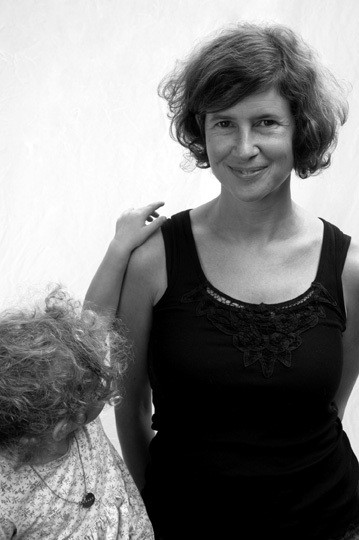"Yet, though it is like this, simply, flowers fall amid our longing,
and weeds spring up amid our antipathy."
—Dogen Zenji, Genjokoan
For Buddhists, every day is a good day to study impermanence. But for us hopeless melancholics, autumn is prime-time, showing off the flare and fade of another rotation around the sun, another moment spent here on earth, and the recognition that my own life span is ever decreasing. Yikes! And in the words of Emily Dickinson, “The things that can never come back are several,” which is, of course, putting it mildly. Were things ever here to begin with? Do we really have what we think we have? What are things?
And if autumn is prime-time for watching the great coming and going, parenting is a ringside seat. Walking through the world with Azalea, sages appear from behind cash registers and seated next to me, watching our kids at gymnastics class, whispering the truth in my ear: Oh, it goes so fast, they say, smiling at Azalea in her pigtails and perfectly poised awkwardness. Some even tell me flat out: Appreciate her now. Mine is 17 and hates my guts. As jarring as these reminders can be, I am always grateful for the heads-up. And even though I know there is a deep sadness, even regret, behind some people’s words of wisdom, it is telling that nobody ever says: Ah, don’t bother. Instead, it’s Care, they say. Celebrate.
And so I have been trying. This fall I have been engaged in a three-month-long training position at the monastery, which involves early mornings, lots of sitting, some public speaking, and liturgy training. It is a big honor to be asked to do this, and also a big responsibility, which feels pretty daunting for the working mother of a four-year-old. And people in our community, noticing, I am sure, how often I am in their midst and thus not my family’s, sometimes ask, How is Azalea doing with all of this? And here is the bad news: She’s doing great. Turns out, the more I sit, the happier she gets.
Out of a mixture of necessity and garden-variety barriers, I have spent the last five years eking out a practice from what we might call maintenance zazen, hoping it was enough. I patted myself on the back a little bit for managing to sit at all, and more important, hoped that all the hard work I was doing off the cushion, including the effort to parent mindfully, would somehow replace the soft discipline of a lot of sitting. It’s not that all of that good work has been for naught. Or that there are some times in my life when sitting a lot is just not in the cards—for instance, when there are people in the house who need to eat from my body several times a night. It’s simply that I am seeing with alarming clarity how much groovier my life is when I sit more. Not a big deal in one sense, but a real drag in another. This particular fantasy, that I can just kind of coast along—that, as Daido used to razz us, “Everything I do is Zen”— no longer provides comfort. And that’s a loss. I know better than to think that from now on I will be up at three am every day, sitting for hours like I am now, but the undeniability of what is possible is a major chink in the armor of my self-soothing. And so from the perspective of the mind that is always on the lookout for a shortcut, this is a major bummer.
I might have guessed, based on an appreciation of Azalea and my interdependence, that my commitment to an intensified practice might positively affect her, though I would have imagined it to be much more cosmic and mysterious than her seeming so darn chipper all the time. After all, I am home less, always schlepping off to the monastery, sometimes deeply tired, even crabby. Just yesterday, recovering from a chest cold, an eye infection, and my period, feeling so raw the wind hurt me by blowing, I came home from the monastery at 7am, and out she came from her room, blue Christmas lights glowing behind her, sleepy and wanting to cuddle. I, on the other hand, wanted to make a fire. Alone. T, on the other hand, was shouting from the fridge, Which one’s my lunch? I basically barked to them both to leave me alone. As I moved through the morning with my little sidekick, noticing each gnarly sensation, then letting it go, then noticing another, etc., etc. Azalea finally asked, “Mommy, why are you so angry? Can you please calm down? I just woke up!” I hear you, I said, afraid to say much more, not wanting to melt down right there.
And then last night, home again from the monastery at 7:30pm, I tucked her into bed and wanted to just lightly affirm her reality, saying, “I was a real grump today, wasn’t I?” Filled with totally uncontrived forgiveness, she yelped, “Not anymore!” She was right. Just one of the things that will never come back.
After my first week of living at the monastery, in 1998, I talked to my friend on the phone, trying to explain why I was so excited, so deeply moved. I told her about standing in the zendo at 6:30am for service, and how I knew that some of these people had been doing this routine every day of their lives for many years, and yet the attention to detail, the quiet passion of the chanting, and the words themselves—songs of miraculous matter-of-factness—just caring about our human life so much, made every single regular morning feel like a special occasion. I don’t think I said it out loud, but I knew: That’s how I want to live. Not because I want it to last, which I do, but because it won’t.












